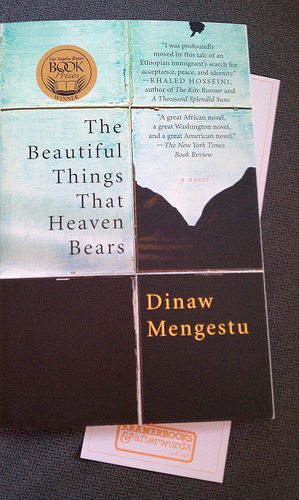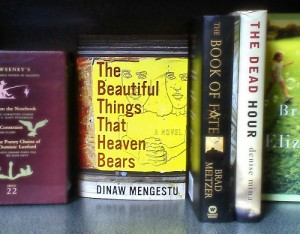Last week, when I mentioned that I wanted to read something by Georgetown Alum Dinaw Mengestu, DCentric reader Danielle (who–if I have guessed from her profile correctly– is Visual Arts editor of the grassroots publication Liberator Magazine) helpfully pointed me towards the bookstores at Busboys and Poets.
I appreciated Danielle’s suggestion because I prefer the immediacy of walking out of a building with a book in my hands vs. buying online, saving four dollars and waiting a week for a cardboard box to arrive in the mail. And about that cardboard– I’m thrilled my apartment building has started offering more options for recycling, but I still feel guilty, as I break down boxes and dutifully trudge to the trash room to stack them up. That’s a discarded, dead tree…used to convey another dead tree.
Fortunately, I get a kick out of supporting independent Booksellers, so that usually prevents cardboard-induced guilt when it comes to procuring reading material. Last night, I unexpectedly had to run an errand near P Street, so I impulsively ran up to Kramerbooks and asked for some fiction. They had both of Mengestu’s books in stock. Huzzah! I’m excited about starting “The Beautiful Things That Heaven Bears”, especially because it takes place right here in D.C. I’d tell you what I think of it so far, but I’m finishing this book, first.




